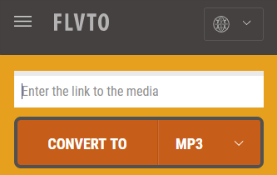YouTube downloaders, often called stream rippers, are seen as the largest piracy threat to the music industry. As such, record labels are doing their best to shut them down.
In 2017, YouTube-MP3, the world’s largest ripping site at the time, went offline after being sued, and several others folded in response to increased legal uncertainty.
Last summer, a group of major record labels, helped by the RIAA, targeted two of the larger stream-rippers that remained online. FLVTO.biz, 2conv.com, and their owner Tofig Kurbanov were sued for copyright infringement at a Virginia District Court.
While the record labels hoped for an easy win, their lawsuit didn’t go as planned. Kurbanov, who resides in Russia, fought back with a motion to dismiss. He argued that the Virginia federal court lacked jurisdiction over a site that’s managed from abroad.
The Court agreed with this assessment. In a verdict released this January, US District Court Judge Claude M. Hilton dismissed the case. The Court carefully reviewed how the sites operate and found no evidence that they purposefully targeted either Virginia or the United States.
“As the Websites are semi-interactive, the interactions with the users are non-commercial, and there were no other acts by the Defendant that would demonstrate purposeful targeting, the Court finds that Defendant did not purposefully avail himself of the benefits and protections of either Virginia or the United States,” the verdict read.
The record labels and the RIAA were disappointed with the outcome and swiftly announced they would appeal. This week they submitted their opening brief which argues that the District Court came to the wrong conclusion.
The record labels state that the site owner’s contacts with Virginia or with the United States are well established. The stream ripping sites transmit hundreds of millions of infringing files to U.S. devices and are monetized by ads which are partly targeted at U.S visitors.
If the current verdict stands, the companies fear that Internet pirates will have “carte blanche” to facilitate copyright infringement, as they will remain out of the reach of U.S. courts.
“The result of the district court’s ruling is that the only court in which U.S. record companies can bring suit to challenge millions of instances of U.S.-based online piracy is in Rostov-on-Don, Russia, where Kurbanov purportedly resides,” the labels write.
“The district court’s decision thus gives carte blanche to Internet pirates to set up shop outside of the United States, safe in the knowledge that they are effectively immune from the reach of U.S. courts seeking to vindicate the rights of U.S. plaintiffs for violations of U.S. copyright law, even as they cater to U.S. users.”
In their opening brief the labels reiterate that FLVTO.biz and 2conv.com have millions of US-based users, including hundreds of thousands in Virginia. The interactions with these users are repeated and interactive, they say.
The District Court previously ruled that the number of U.S. users is irrelevant, as the sites’ contacts with these people are “unilateral” and “non-commercial. The site does generate income from US users through ads, but that was not enough to be seen as a commercial contract.
The labels clearly disagree with this conclusion, calling it absurd.
“To isolate the content from the revenue generating advertisements as the district court did here would be to say that Google, Facebook, Snapchat, and countless other Internet companies’ relationships with their users is non-commercial. That position is absurd,” they counter.
The labels further point out that the sites used a U.S.-based advertising firm, U.S.-based domain registrars and, until recently, U.S.-based servers. In addition, the site owner registered a DMCA agent with the U.S. Copyright Office, which isn’t typical for a site that doesn’t target the U.S.
“Appellee has, for example, registered a DMCA agent with the U.S. Copyright Office—the only purpose of which is to seek to qualify for the DMCA’s safe harbor defense to claims of copyright infringement in U.S. courts,” the brief reads.
Based on these arguments the labels ask the appeals court to overturn the District Court’s verdict. Or, as an alternative, vacate it to allow for jurisdictional discovery.
Tofig Kurbanov and his legal team have yet to respond to the accusations. They don’t believe that U.S. courts have jurisdiction over the sites and its owner, and will likely make that clear during the weeks to come.
—
A copy of the record labels’ opening brief is available here (pdf).


 YouTube downloaders, often called stream rippers, are seen as the largest piracy threat to the music industry. As such, record labels are doing their best to shut them down.
YouTube downloaders, often called stream rippers, are seen as the largest piracy threat to the music industry. As such, record labels are doing their best to shut them down.



